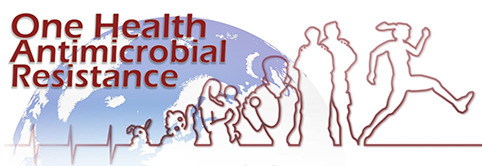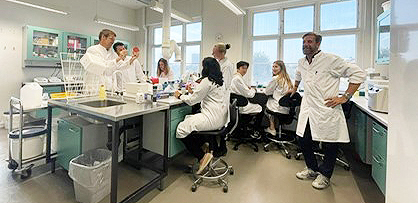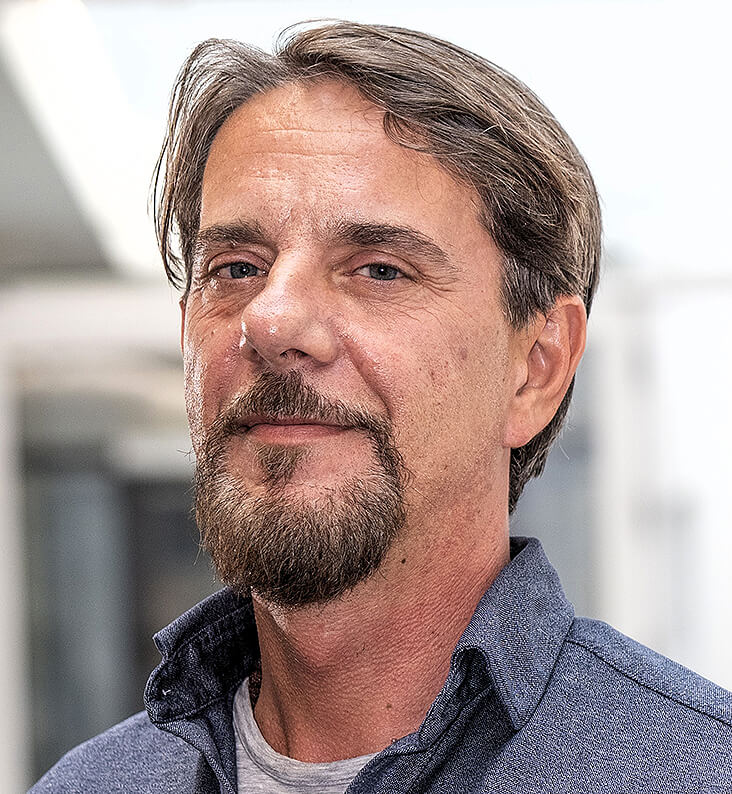One Health Antimicrobial Resistance (OHAR)
The OHAR group conducts research on discovery and development of solutions for improving diagnosis and antimicrobial therapy of bacterial infections in veterinary medicine using a One Health approach based on the recognition that the health of people is connected to the health of animals. The group has two strategic objectives:
- Develop diagnostic tests and methods to reduce and rationalize antimicrobial use in animals. We pursue this objective through the development of new Point-of-Care tests for rapid and cost-effective guidance in antimicrobial prescription, as well as by setting and reviewing the clinical predictive value of clinical breakpoints for antimicrobial susceptibility testing and developing machine learning-based methods for early identification of animals predisposed to disease.
- Optimize use of veterinary antimicrobials to minimize selection and spread of antimicrobial resistance. We pursue this objective by analysing the impact of different antimicrobials on gut microbiota diversity and resistome, but also by developing and testing i) innovative therapies based on reversal of antimicrobial resistance, ii) pathogen-targeted therapies with minimal impact on the commensal microbiota, and iii) alternatives to conventional antimicrobials.

Current projects:
- Coordinator of the EU Innovation Action “Alternatives to veterinary antimicrobials” (AVANT, 2020-2025). The aim of this project is to develop and assess the efficacy and sustainability of various alternatives to antimicrobials for the management of post-weaning diarrhoea in pig production. Based on the results of pre-clinical studies and regulatory considerations, we have selected the most promising interventions to assess their clinical efficacy and benefits on antimicrobial use by farm trials. Our main research contribution to this project is to evaluate the effects of different alternatives on the presence of the diarrhoea-causing pathogen (i.e., enterotoxigenic Escherichia coli) and on the diversity of the faecal microbiota.
- Coordinator of the JPIAMR project “Farm interventions to control antimicrobial resistance” (FARM-CARE, 2022-2025). The aims of this project are i) to understand the impact of pig mixing on spread of antimicrobial resistance, ii) to evaluate the efficacy of biosecurity measures for preventing the spread of antimicrobial resistance to farm workers and their family households; iii) to develop innovative machine learning tools to identify predictors of stress and disease; and iv) to assess the relative merits of the different interventions from the perspective of the farmer and society. We contribute to this project by evaluating effects of these interventions on the porcine faecal resistome and developing a machine learning approach to identify piglets predisposed to diarrhoea based on their faecal metagenomic profile.
- Coordinator of the COST Action European Network for Optimization of Veterinary Antimicrobial Treatment (ENOVAT, 2019-2024). The aim of this network is to optimize veterinary antimicrobial use with special emphasis on the development of animal- and disease-specific antimicrobial treatment guidelines and refinement of microbiological diagnostic procedures. We contribute to this project by developing MALDI-TOF identification criteria and providing and assessing data for setting clinical breakpoints. Furthermore, we lead a drafting group developing antimicrobial treatment guidelines for bovine respiratory disease.
- Partner in the Novo Nordisk Foundation project “Preventing infection in the gut of developing piglets – and thus antimicrobial resistance – by disentangling the interface of diet, the host and the gastrointestinal microbiome” (PIG-PARADIGM, 2023-2027). The mission of PIG-PARADIGM is to deliver fundamental science needed to develop solutions to reduce antimicrobial used and to mitigate the spread of antimicrobial resistance in pig production. Our role in this project is to elucidate the interactions between the Eukaryotic (fungi and protozoa) and Prokaryotic (bacteria) components of the pig intestinal microbiota and exploit this new knowledge to develop innovative dietary strategies based on probiotic or prebiotic interventions.
- Partner in the Marie Curie Initial Training Network on antimicrobial drug target discovery (INNOTARGETS, 2021-2025). The goal of INNOTARGETS is to train highly skilled early-stage researchers (ESRs) with in-depth knowledge and inter-disciplinary expertise in bacterial metabolism, metabolic modelling, antimicrobial screening approaches, and in situ toxicity evaluation. We contribute to this project by a PhD study aiming to identify a set of non-resistance genes/proteins that are essential for expression of macrolide and fosfomycin resistance in coli and use them as drug targets to re-sensitize pathogenic Escherichia coli to these antimicrobials.
- Partner in the EU Partnership on Animal Health and Welfare (PAHW, 2024-2026). The aim of this partnership is to strengthen prevention and control of endemic and emerging diseases in livestock and improve the animal welfare conditions along the production chain to support a shift towards more animal-friendly production practices. We contribute to this project by a PhD study focusing on optimization of antimicrobial therapy of post-weaning diarrhoea in piglets and alternative strategies such as faecal microbiota transplantation for prevention and control of this important disease in pig production.
- Partner in the Joint Action on Antimicrobial Resistance and Healthcare-Associated Infection (JAMRAI, 2024-2028), which aims to support EU Member States/Associated Countries (MS/AC) in their efforts to develop and update their National Action Plan (NAP) on AMR. We contribute to this project by coordinating the establishment of European harmonized surveillance of antimicrobial resistance in animals and by developing guidelines for the implementation of stewardship programmes in animal health settings.
Past EU projects and networks:
- GAP-ON€-2 (2021-2024)
- Combatting Antimicrobial Resistance Training Network (CARTNET, 2018-2022)
- Global Antimicrobial resistance platform for one burden estimates (GAP-ONE, 2019-2020)
- Training and Research aimed at novel antibacterial solutions in animals and people (TRAIN-ASAP, 2012-2016)
- Companion Animals multisectoriaL interprofessionaL and Interdisciplinary Strategic Think tank on zoonoses (CALLISTO, 2012-2015)
- Evolution and transfer of antibiotic resistance (EvoTAR,2011-2015)
- Preventing community and nosocomial spread and infection with MRSA ST398 (PILGRIM, 2009-2011)
OUR HONORARY OFFICE
Locally we are responsible for one of the largest diagnostic laboratories that offers microbiology services to companion animal clinics in Denmark (SUND VET DIAGNOSTIK).
We are also involved in various prestigious international committees and organizations:
- European College of Veterinary Microbiology (ECVM)
- European Veterinary Subcommittee on Antimicrobial Susceptibility Testing (VetCAST)
- Quadripartite Technical Group on the Economics of AMR (QTG-EA)
- JPIAMR Scientific Advisory Board
- ESCMID Study Group for Veterinary Microbiology (ESGVM)
- WSAVA Therapeutic Guidelines Group (TGG)
- ISCAID Antimicrobial Guidelines Working Group
To see a publication list, click the name of the researcher here below;
Professor Luca Guardabassi
Associate professor Peter Panduro Damborg
Associate professor Rikke Heidemann Olsen
We have several interesting projects targeting veterinary students. You can see some examples here. Feel free to contact us if you are interested in one of the announced projects or if you wish to discuss an alternative project within the broad scope of veterinary clinical microbiology.
News from the group
Group/project members
| Name | Title | Phone | |
|---|---|---|---|
| Damborg, Peter Panduro | Associate Professor | +4535332702 | |
| Guardabassi, Luca | Professor | ||
| Hanegård, Manja | Laboratory Technician | +4535336478 | |
| Ma, Yibing | PhD Fellow | +4535322210 | |
| Olsen, Rikke Heidemann | Associate Professor | +4535336431 | |
| Pearce, Ryan Sean | Visiting PhD Student | ||
| Pirolo, Mattia | Assistant Professor | ||
| Sherwani, Moiz Khan | External Postdoc | +4535329515 |


